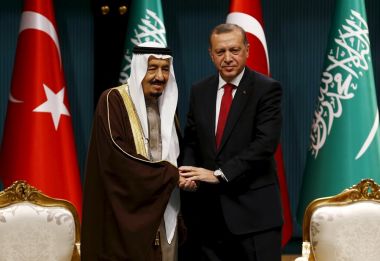Muslim leaders converge in Turkey to call for new Israel-Palestinian peace process

In the largest gathering of Muslim leaders, some 30 heads of state are meeting in Istanbul, Turkey for a five-day conference this week (April 10 – 15) to call for a new peace process to end the Israeli-Palestinian conflict.
The summit organised and spearheaded by the Organisation of Islamic Cooperation (OIC) is discussing vital issues such as combating extremism within Muslim nations, countering Islamophobia in the rest of the world, and protecting the Rohingya — a group of Muslims suffering persecution in Myanmar.
Turkish President Recep Tayyip Erdogan, King Salman of Saudi Arabia, Pakistani Prime Minister Nawaz Sharif, Lebanese Prime Minister Tammam Salam and Palestinian Authority President Mahmoud Abbas are among the heads of state attending the summit.
"Delegations from the OIC's 57 member states are expected to focus on exceptionally critical circumstances, regionally and internationally," said OIC Secretary General Iyad Ameen Madani, according to Religion News.
"The summit aims to create a collective vision for the Muslim world over the next 10 years," Madani said.
"It is the only forum in which such a vision can practically be agreed on by heads of state and official delegations from across the entire Muslim world," he added.
Founded in 1969, the OIC calls itself "the collective voice of the Muslim world" and holds summits every three years, Religion News reports.
This year, the OIC said a new international conference on the conflict between Israelis and Palestinians should take as its starting point United Nations resolutions on the hostilities and the "Arab Peace Initiative."
The initiative, which was reportedly brokered by Saudi Arabia in 2002, got some support from both the Israeli and American governments despite having decried U.N. resolutions on the conflict as unfair to Israel.
The ongoing struggle between Israelis and Palestinians dates back to the mid-20th century. It has been referred to as the world's "most intractable conflict."
Accordingly, the conflict—in a region rich in historic, cultural and religious interests worldwide—has always been the object of numerous international conferences dealing with historic rights, security issues and human rights, and has been a factor hampering tourism in and general access to areas that are hotly contested.











